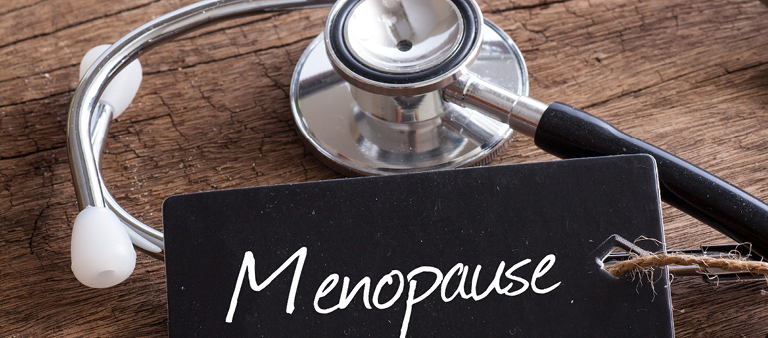
Mid life Concerns – Menupause
Mid life Concerns – Menupause
Every woman faces the challenges of her midlife differently, be it aging, menopause, the changes in her reproductive parts, stress, mood swings and other demands of the age. In this blog we are going to discuss one major midlife concern of a women ‘MENOPAUSE’.
WHAT IS MENOPAUSE:
Menopause is a naturally occurring biological process in a woman’s body and not a disease. It is the time in a woman’s life which marks the end of her menstrual cycles and natural pregnancy, because the ovaries stop producing the hormones estrogen and progesterone.
WHEN IT OCCURS:
It usually occurs after the age of 45, but around 1 in 100 women experience menopause before the age of 40. This is known as premature menopause or premature ovarian insufficiency.
PERIMENOPAUSE AND POSTMENOPAUSE:
Where menopause is the final stage of the end of the menstrual cycle, perimenopause is the transitional time immediately when the menopause is about to occur. It can last for 6 years or more. On the other hand, postmenopause is the time in the women’s life after the menopause has occurred.
SYMPTOMS:
The onset of menopause begins when a woman has not menstruated for 12 months, however the changes in a women’s body and the symptoms can start several years earlier. Sometimes the menstrual cycle stops suddenly. Signs and symptoms, including changes in menstruation can vary among women. One is most likely to experience changes in the menstruation when menopause begins. Following symptoms might be experienced in the months or years leading up to menopause (perimenopause).
Irregular periods – shorter or longer, lighter or heavier, with more or less time in between
Hot flashes (short, sudden feelings of heat)
Trouble sleeping
Vaginal dryness
Mood swings
Trouble focusing
Chills
Night sweats (hot flashes that occur at night)
Weight gain and slowed metabolism
Thinning hair and dry skin
Loss of breast fullness
Less hair on head, more on face
CAUSES:
There are multiple causes menopause can result from. A few causes are as follows:
Declining reproductive hormones:
The menopause occurs as you get older, caused by a change in the balance of the body’s reproductive hormones, estrogen and progesterone. As women start approaching their late 30’s, the production of these hormones is decreased by the ovaries. These two hormones are responsible for regulating the menstruation, and hence the fertility declines. The menstrual periods may become longer or shorter, heavier or lighter, and more or less frequent in the 40’s and eventually by the age of 50, the ovaries stop releasing the eggs, putting a stop on periods.
Oophorectomy:
Oophorectomy, a surgery in which the ovaries are removed causes immediate menopause as there is no production of the two hormones. One is likely to experience hot flashes and other menopausal symptoms, which can be severe as the hormonal changes occur abruptly rather than gradually over several years.
Hysterectomy:
It is the surgery which removes the uterus, but not the ovaries. This doesn’t cause immediate menopause. Although the women undergoing this surgery no longer have periods, the ovaries still release eggs and produce estrogen and progesterone.
Chemotherapy and radiation therapy:
The cancer therapies can also induce menopause, causing symptoms such as hot flashes during or shortly after the course of treatment. If the radiation is directed at the ovaries, it would affect the ovarian function.
Primary ovarian insufficiency:
Rarely, around 1 in 100 women suffer from premature menopause also known as primary ovarian insufficiency. It occurs from the failure of the ovaries to produce normal levels of the reproductive hormones. Although no cause of premature menopause can be found, it can stem from genetic factors or autoimmune disease. For these women, hormone therapy is typically recommended at least until the natural age of menopause in order to protect the brain, heart and bones.
TREATMENT
Menopause is a naturally occurring phenomenon and so requires no treatment. However, the treatments are focused on relieving the signs and symptoms and preventing the chronic conditions that may occur with aging. The most common treatment is hormone therapy.
Menopausal Hormone Therapy
There are two basic types of hormone therapy:
Estrogen-only Therapy: Estrogen helps prevent bone loss. It is prescribed for women without a uterus owing to a hysterectomy.
Combined Estrogen-plus-Progestogen Therapy: Progestogen is added to protect women with a uterus against uterine (endometrial) cancer from estrogen alone. Combined Estrogen and progestogen therapy increases the risk of breast cancer if used for more than 3-5 years. The doctors, therefore, use the treatment considering the family history and the symptoms you are facing.
Other Treatments:
- Vaginal estrogen:
- Low-dose Antidepressants
- Gabapentin (Neurontin)
- Ospemifene (Osphena)
- Osteoporosis Medications
- Plant Estrogens (Phytoestrogens)
CONCLUSION:
Menopause is a midlife concern, which every woman has to face during their life. It is not a disease and not something to be afraid of. Every woman faces this part of their life differently. Treatments are available to cure the symptoms, which are advised by your doctor after taking your family medical history, clinical presentation and a thorough evaluation of the risks and benefits discussed with the patient. Alongside that, supplements should be added in the diet and a healthy lifestyle should be adopted which includes a balanced diet, exercise and walk.